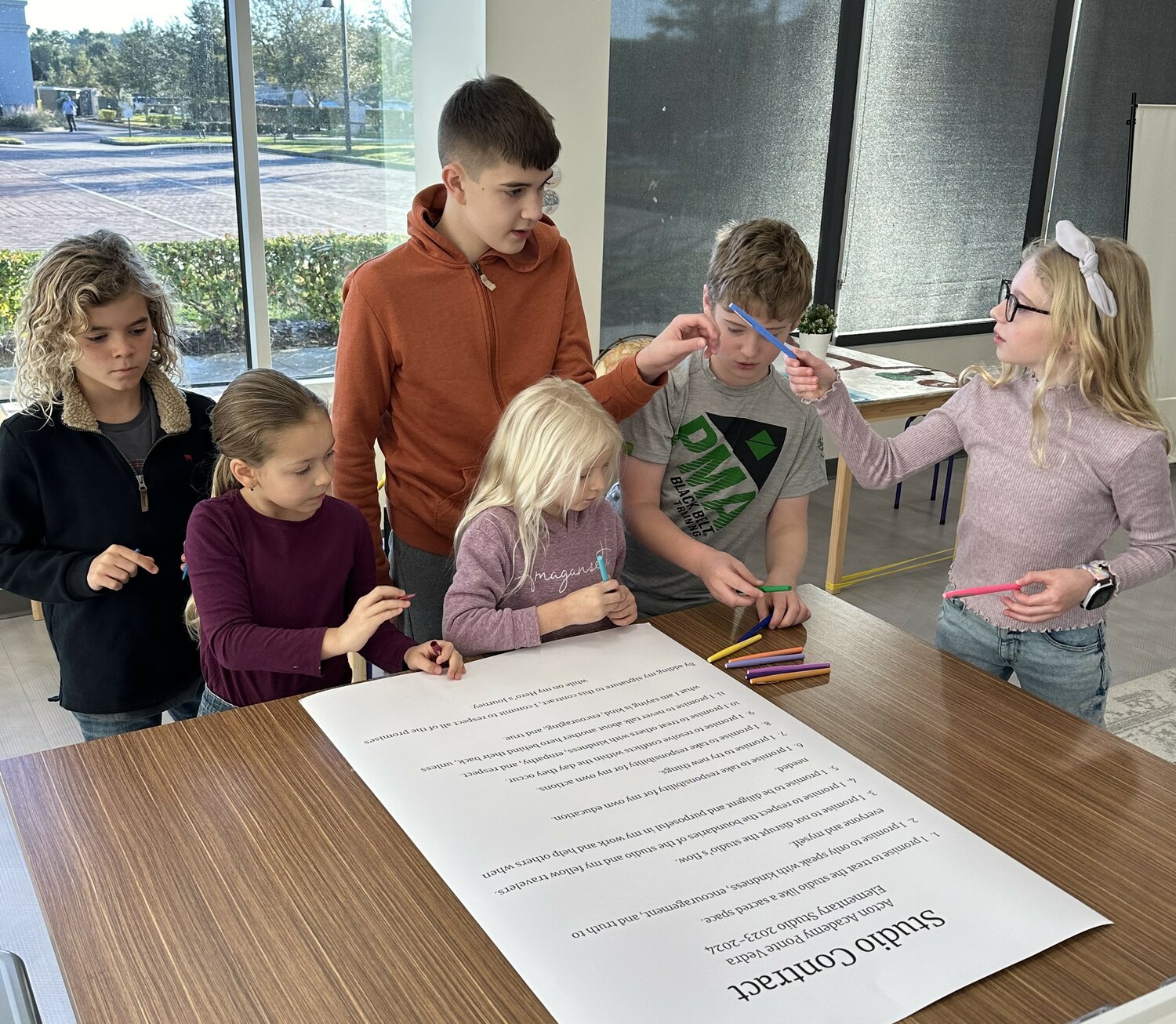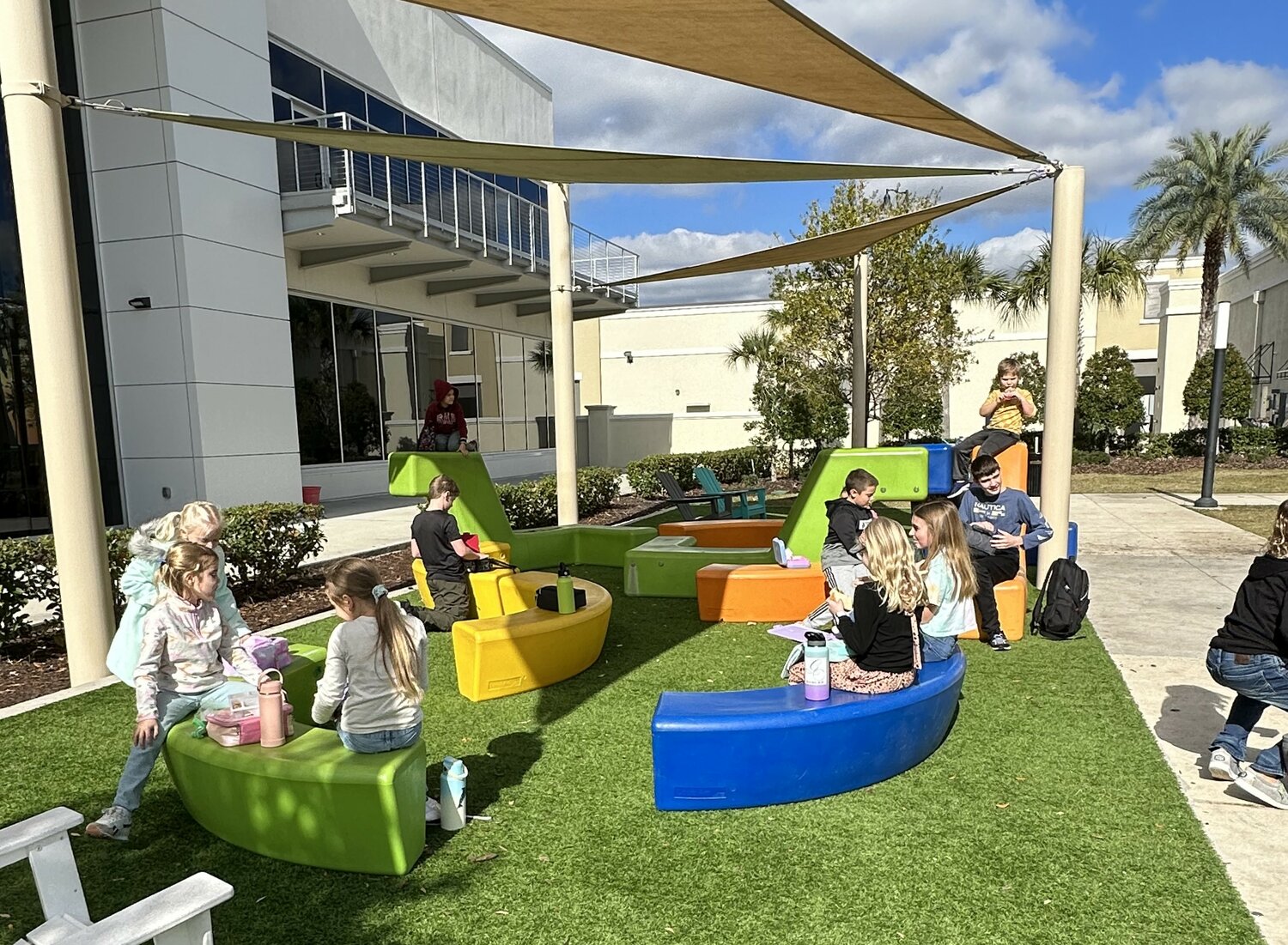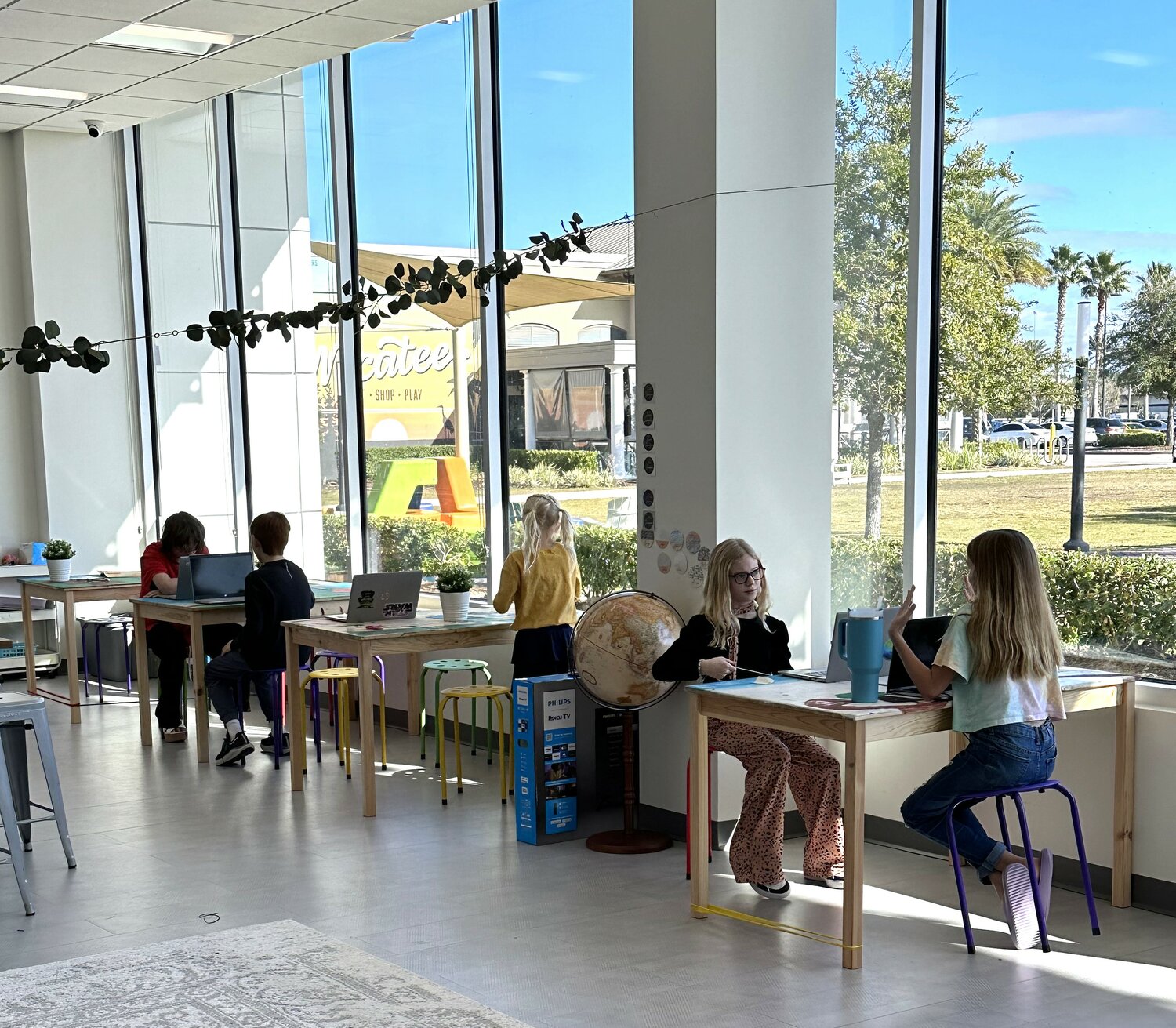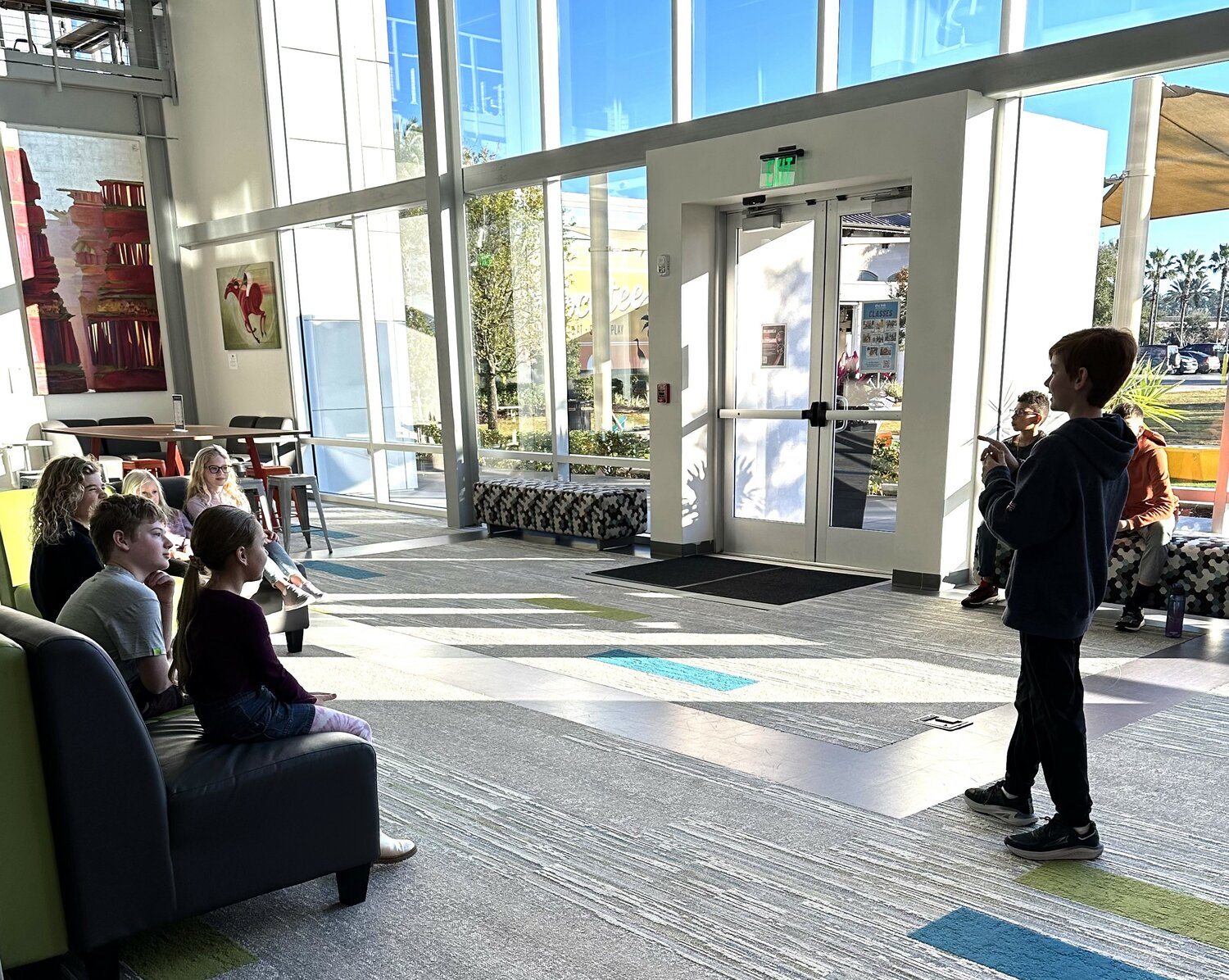New private school takes novel approach to learning
Students enrolled in a new private school in Nocatee are on a hero’s journey.
And like the central figures following the path described in Joseph Campbell’s iconic work, “The Hero With a Thousand Faces,” these children will face challenges, occasionally failing in some task but always getting back up to overcome it and learn from their experiences.
It’s part of the overarching philosophy behind Acton Academy Ponte Vedra, which opened in September at the link.
The young heroes — as they are termed — do fight “monsters,” albeit the figurative variety.
“They fight the monster of victimhood, the monster of distraction, the monster of resistance,” said the school’s founder, Matthew Ahrnsbrak. “But they are heroes, and they have very important work to do.”
And that important work is, of course, learning.
Acton Academy Ponte Vedra is part of a network of 300 schools worldwide. Though all have their roots in the original Acton Academy founded in 2009 by Jeff and Laura Sandefer in Austin, Texas, each retains its own character.
“Each Acton is going to be a little bit different, based on what each of the heroes brings to the studio,” said Ahrnsbrak.
The local school began with what might best be described as grades two through five. This month, it expanded to include younger children, ages 5 through 7. Next year, Acton Academy Ponte Vedra plans to expand further to incorporate middle school. Ultimately, it will add high school grades, essentially making it a K-12 school.
But it is not structured the way traditional schools are structured. And though it shares some ideas put forth by Maria Montessori, it is not a Montessori school.
“I think the key defining factor that makes Acton Academy different than any other school here is the role of the adults in the classroom,” said Ahrnsbrak. “We don’t have teachers. Our adults in the classroom are called Socratic guides, facilitators.”
In fact, the learning process is driven by the students themselves. According to Ahrnsbrak, children are innate geniuses.
“It’s not our job to impart knowledge onto them,” he said. “But rather, create games and challenges and scenarios to bring out their genius. And some of the things that they’ve come up with in the studio are incredible.”
The school day begins with a 15-minute Socratic discussion to “start the day intentionally.” The students are presented with a dilemma and must debate their choices before selecting a solution.
Following that is core skills work: reading, writing, arithmetic. Curriculum is accessed via adaptive learning programs, such as Khan Academy and Lexia. The children are incentivized to complete their coursework so as to move on to higher levels and their progress is tracked. They earn badges along the way, indicating that they have mastered a subject and are eligible to advance.
Afternoons are reserved for “quests,” sessions with special themes that change each five or six weeks. Currently, the students are learning about coding and robotics.
Aside from the state-mandated standardized test given each April, there are no exams. At the end of each six-week session, the students present an exhibition of the knowledge and skills they have acquired. This is another way to gauge their progress.
As the learning process is different from that found in the traditional classroom, so too is navigating interpersonal problems. The students engage in conflict resolution to address the situation constructively. In addition, the school conducts a “town hall meeting” each Friday, where students may present grievances and propose solutions.
Ahrnsbrak said he has three hopes for the students.
First, he wants them to love learning.
“I want you to love coming to school every day,” he said.
Second, he wants them to feel successful each day.
“Come in every day and accomplish something,” he said. “Maybe you’re reading 15 pages in a really challenging book, or you’re overcoming fourth-grade math challenges, or you’ve just gotten into the Pythagorean Theorem.”
Finally, he wants them to learn to get along with other people.
“If there’s one thing that the Acton Academy model has delivered to the world, it’s that we’re guiding our learners to learn how to interact with other people.”
Though he owns and operates this alternative learning environment, Ahrnsbrak has an appreciation for the other schools — both public and private — in St. Johns County.
“We have some of the best public schools in America,” he said. “They do an amazing job. … If you’re happy there, at the public school, and your children are thriving and they’re coming home happy and they’re learning every day, amazing, great. But if they’re not, there are other alternatives.”
In fact, Acton Academy Ponte Vedra arose in response to Ahrnsbrak’s attempts to find the right educational environment for his daughter.
After placing her in a Montessori school, then a private school and finally a public school, he realized that for her to succeed he needed to try something novel. He spent several months designing his own curriculum, and in researching the subject, he came across Acton Academy. He found that it mirrored his own efforts and so decided to open one of his own.
All he needed was a place.
“I was really looking for a space that was convenient to Nocatee that had the resources and the things that we needed — access to an outdoor play space and the ability to expand,” he said.
He found that space at the link, a unique, multi-use facility located at 425 Town Plaza Ave., Ponte Vedra.
Acton Academy Ponte Vedra enrolls new students at the beginning of every six-week session, so the next opportunity for interested parents will arrive in mid-February.
Parents can learn more by stopping by the link, emailing Ahrnsbrak at matt@actonacademyPV.com or going to www.actonacademyPV.com.














